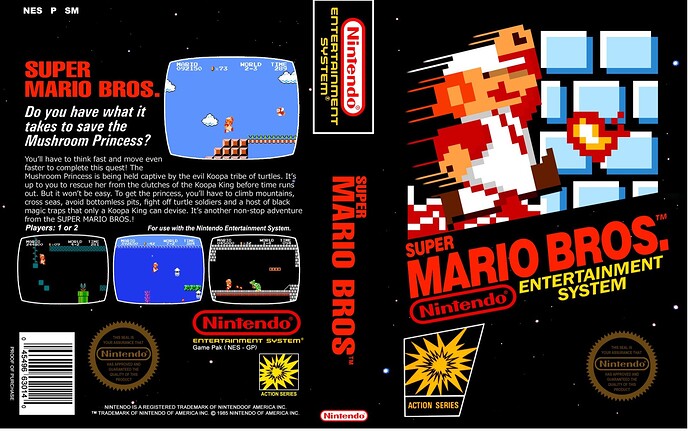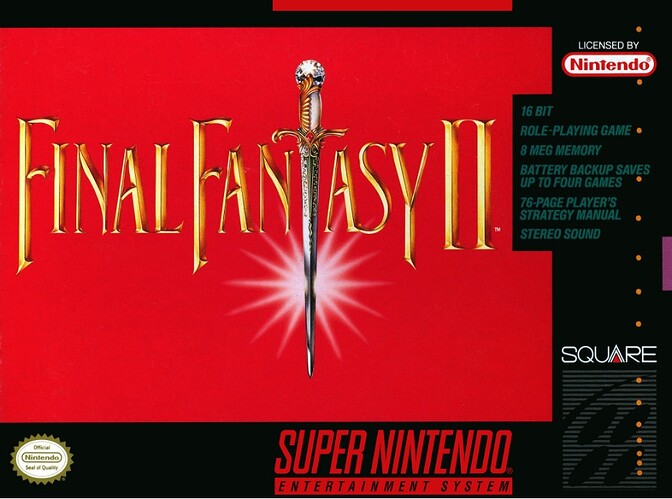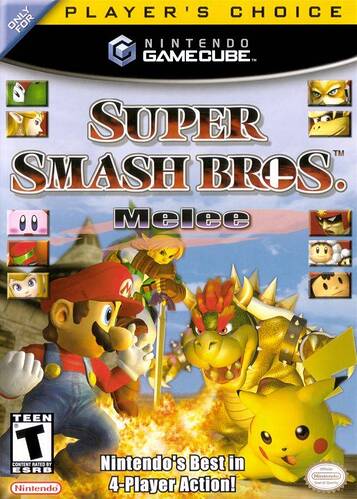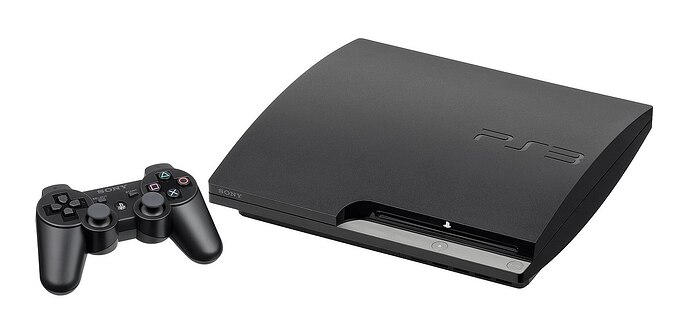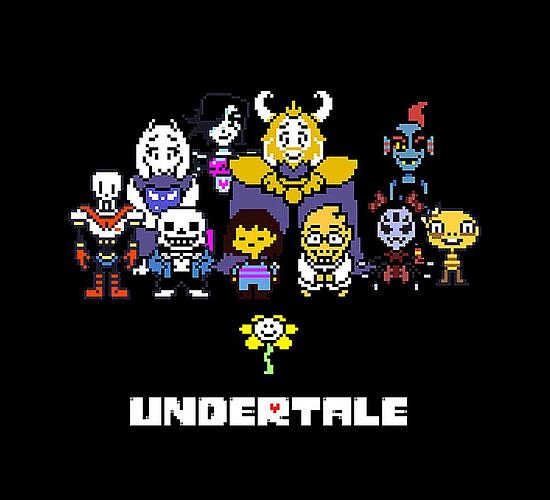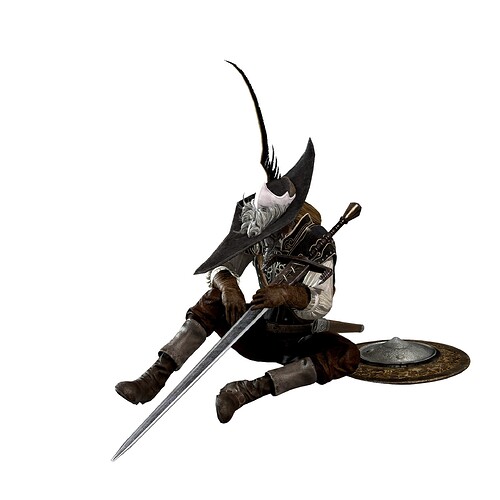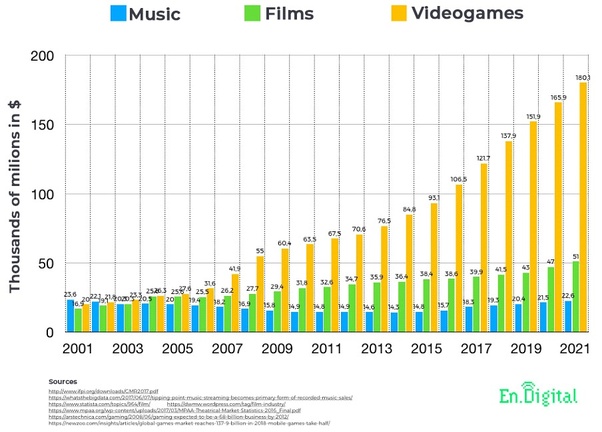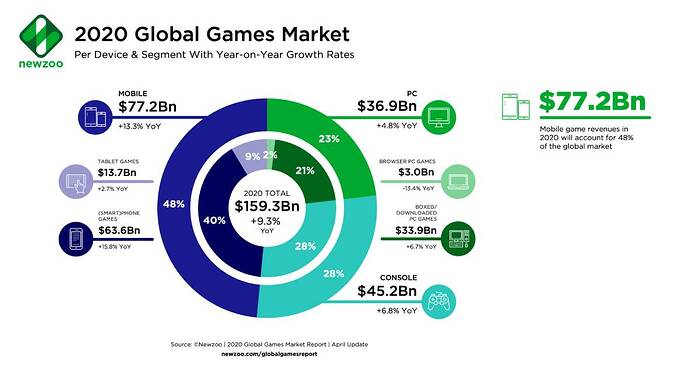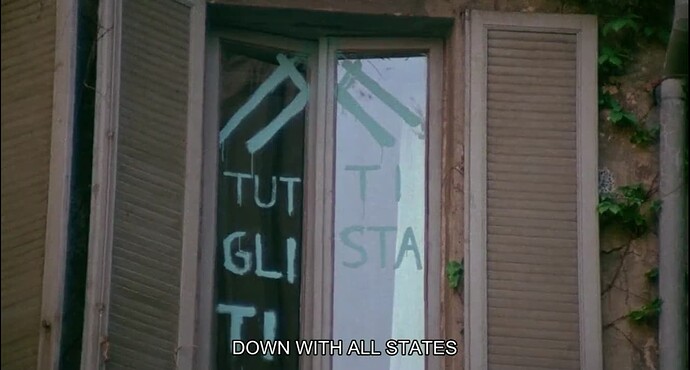Chapter 1: Brothers are your first friends
Super Mario Bros. was a console platformer released in Japan and the United States in 1985 for the Famicom and Nintendo Entertainment Systems, respectively. Perhaps the most iconic video game in history, SMB provided a foundation for the popularization of the medium and introduced millions of new players to gaming as a pastime and artform. With its precise, simple, and joyous verbs and meticulous level design, SMB continues to influence game makers today. This game would never make my top 10 game list – maybe not even my top 50 list. To me its importance lies in the way it brought me together…
…perched on the end of a twin bed in the first floor bedroom of a tiny New England cape. World 1-1 flickering left to right across a CRT television controlled by three vertical knobs. It is 1991, and the TV is old even now, each channel and volume adjustment eliciting a prominent CLUNK. I am five years old, and am sitting between my brothers, Mark (15) and Daniel (12). Mark is in high school, and this is his bedroom - the walls adorned with posters of cars, football players, and military airplanes. This is not the first game I have ever played; our father is a technophile, and likes to own the latest electronics despite having almost no interest in learning to use them. I’ve played spyhunter on the Commodore 64 and Where in the USA is Carmen San Diego on the Apple 2, but those games felt prosaic, confusing, and aimed at someone older. Super Mario Bros. is a kid’s game, made just for me. Today is the first time my brothers will let me play, and we take turns passing the controller each time we die. Inevitably, this means they each play for several levels, and I play for as long as it takes me to sprint directly into the game’s very first deadly, bottomless pit. Daniel is a gawky pre-teen, his glasses several sizes too big for his freckled face. They spill over his round cheeks, and his skin has the pallor of a boy recently ill. He was recently ill – having last year survived an open-heart surgery that was still a medical marvel in the early 1990s. Daniel and I do not get along. Daniel and Mark do not get along. I am beginning to learn the rules of “shit rolls downhill,” a family dynamic in which Mark hurts Daniel and Daniel hurts me and I cry by myself with no one to pass onto. But here, perched on this bed, in this bedroom beneath the poster of an F-14 Tomcat, the flying of which is the someday dream of the soon-college bound Mark, we are brothers. Not quite equals, perhaps. I keep running into that goddamned pit. But closer, kinder, showing each other more love and support than elsewhere. Very soon Mark and Daniel will move on from games, leaving them behind with their childhoods and their innocence. Unlike them, I will take this experience on, savoring and remembering the warmth of their presence. Daniel puts his arm around my shoulder and groans with delight as I flutter jump just short of the right hand pit-wall.
He’s up next.
Chapter 2: Finding out who you are has consequences
Final Fantasy IV was a Japanese role playing game released in 1991 in Japan and the United States. It was marketed as Final Fantasy II in the West, after developer Squaresoft had decided not to release the previous two titles in the series in that region. At the time, JRPGs were still a niche genre in the US, and Square did not want to further confuse an audience they feared would be predisposed to disregard their challenging, complicated game. FFIV represented a colossal improvement over its predecessors. The game featured a dozens of hours long high fantasy narrative, replete with complex characters, timeless themes of friendship and sacrifice, and a myriad of novel gameplay elements. FFIV was likely the most important game of my childhood. Despite my dogged defense of FFVI and Chrono Trigger as the inarguably best JRPGs of the undoubtedly best era for JRPGs, their real significance in my life as a lover of games pale in comparison to their seminal big brother. In 1992, I played this game start to finish at a friend’s house. A month later, the older brother of another friend lent me FF4 and I played it start to finish again – renaming Cecil after myself and Rosa after my 2nd grade crush. On my third playthrough of the game…
… I sit alone on a round, woven rug laid atop a poured concrete floor. I can feel the cold February chill from the cement, a sweatshirt and blanket wrapped around my shoulders to hold in the dwindling warmth. My back pressed against angled steel of an ancient, pillowless futon, and my face illuminated blue by the flickering television. I am playing Final Fantasy IV, and the wizened mage Tellah has just died, expiring in an effort to cast the legendary METEO at his nemesis, Golbez. None of these names strike eight-year-old me as the least bit ridiculous. I’m pulled along by the drama. The game’s volume is turned up as loud as I can stand, and it will be years before I realize I have done this to drown the sounds of argument filtering down the stairwell. Fifteen year old Daniel crouches at the banister, swearing at me to mute my goddamn pussy baby game so that he can listen. I do not understand why he would want to listen to them scream at each other about deadbeat family, addiction, responsibility, money. These real world struggles are scarier than the fantasy ones on the television. Daniel hates games now. Daniel hates me now. He wishes I was gone, someplace else, or else he was gone and someplace else. Daniel hates himself; though this is also something I will not realize for many years. He hates himself and so he must hate me twice as much. I want nothing more than to be rid of him. In three years he will leave for college, pack up and drive 1,200 miles due South and I will relish the freedom from him. He lives in the room where we once played Super Mario Bros together. I haven’t been in that room for years.
Chapter 3: Just one of the guys
Super Smash Bros. Melee was a 2D fighter released by Nintendo in 2001 for the Nintendo Gamecube. Melee represented a massive improvement over its N64 predecessor, with faster gameplay, more characters, a fleshed-out experience for solo players, and an overall greater sense of depth and complexity. The Smash Bros. series is different from most fighters in that instead of characters having health bars that are depleted by successful attacks, the player-characters have rising “percentages,” that effect the weight of the character. The ultimate goal of Smash is not to kill your opponent, but to knock them off the stage in such a way that they cannot safely return. This gives the games an entirely different feel from its erstwhile peers. While some players come to Smash for its unique feel, others are attracted to the series’ variety of friendly and familiar Nintendo characters. This second iteration of the series has shown incredible staying power. Even now, two decades after its initial release, Melee has an active competitive community. While I never participated in any formal competitive events during my time with the game, I did spend hundreds (thousands??) of hours playing side-by-side on dingy college couches and in friends’ mildew-smelling basements…
…I’m sitting on a ragged la-z-boy chair in a room just wide enough for it to squeeze between a matching pair of twin beds. A CRT television sits atop a mini-fridge ahead of me. This television is a marvel:. 32 inches, wide screen, relatively flat, and not a knob in site. Connected to it, a violently purple cube of high-grade polymer plastic. An unused handle juts from the rear of this electronic box, and inside it, a spinning red disc approximating the tire of an RC car. Crowding the beds and the arms of the chair (affectionately known as “The Tweed,” despite being decidedly made of pleather) are who I will later call in turns ‘the guys’ or else ‘my college friends.’ In 2005, they’re my roommates. We all have different majors. Yet we all have one major. That major is Smash. I don’t think of Daniel much now that I’m older. Whenever my mind does wander to him, it quickly turns elsewhere. My thoughts of Daniel are tangled up in feelings of grievance and quiet guilt. I am not mature enough yet to recognize this. So many years spent hating one another, fighting one another, wanting to be away from one another. Yet he has started to come back into my life. He has made entreaties. They are not apologies – at least not in the strictest sense – but they’re kind of like apologies. They have the shape of an apology, one that sits precariously on your lips, almost spoken but never spoken aloud. This weekend is one of those unspoken apologies, and it comes in the form of exactly 30 keystone lights and one handle of rum. Daniel appears at the doorway with a massive opaque duffel, one that’s designed to avoid the searching eyes of the RA and the university police. Daniel is 25, I am 18. He can buy booze, and I cannot. I think that he is here to relive his heady, fraternity brother college days. I think it is useful but pathetic. I miss the fact that he is not here for him. I miss the fact that he is here for me. I miss the fact that he is here to apologize but doesn’t know the words. He can’t find the words and neither can I.
I miss so much.
Chapter 4: Taking care of myself
Developed by Sony Computer Entertainment, the Playstation 3 was released in North America in 2006. The PS3 was a part of the so-called seventh console generation, competing for sales with Microsoft’s Xbox 360 and the Nintendo Wii. Expectations for the PS3 were sky high in the mid-2000s, following on the unprecedented success of its immediate predecessor. It was seen at the time as expensive and somewhat clunky, but it was also a no-nonsense technological achievement – being the first console to come standard with a blu-ray player and paving the way for the future of social, online gaming. I got a PS3 slim for Christmas in 2009, and the first game I played on it was Final Fantasy 13. An interestingly parallel experience, as FF13 was also a technical marvel that nonetheless premiered to lackluster reviews and sales.
I moved to Boston in 2009, shortly before getting married and shortly after the start of the worst recession in three quarters of a century. My fiancé and I signed onto a $1,000 a month apartment contract while our combined income was around $400 a month. We thought it was romantic. It was romantic, in a way, living by the moment, balancing the books on the edge of a knife. We explored the city’s edges and its hidden pockets. The underpass dance halls and narrow restaurants with room for only one table. One of these was a Korean place staffed seemingly by one impossibly ancient woman. She knew us by sight and would always put down a massive plate of banchan when we arrived. We never knew what any of the things were in the little, immaculate white plates. We ate them ravenously.
When we couldn’t afford to eat at restaurants, we lived on ramen noodles and heated our home with the burners of a gas stove lit with a sulfur match.
It was a month after the move that Daniel started to show up. Now in his late 20s, Daniel had a high paying and very stressful job. He’d been poor too, for a very long time, moving back in with our parents and living through what I now know was a deep depression. Now that he wasn’t poor, he had developed a pretty serious shopping habit. His favorite type of shopping was for family members, and I was his very favorite person to lavish with gifts. Like I said, he started to show up, and when he did he always brought gifts. On his first visit, he looked at our bulbous, hulking, and now ancient 28 inch television. He stood in the middle of that cold, bare room, staring at that television. What he said has become the stuff of family legend:
“Everybody deserves a big tv.”
And so he drove me to Best Buy and he bought us a big, expensive tv.
That television finally died last year. I cried when I left it at the dump.
The next time he came, he brought me a widescreen high definition computer monitor. I’m looking at that monitor right now. There were many other gifts as well, but that Christmas he really took the proverbial cake. In a packed room at my parent’s house, I unwrapped a large box of indeterminate shape. It was a brand new Playstation 3, with an unwrapped copy of Final Fantasy 13 and a dedicated multimedia remote control. Of course I had wanted one. I’d been a Playstation baby since Square jumped the Nintendo ship in the mid-90s. I never could have afforded one, not if I saved for a year. It’s pretty hard to save when you’re $600 in the hole just to cover your rent.
I hated it.
I hated that goddamn box and that stupid remote control and the fucking games. I hated that I wanted it and couldn’t buy it for myself. I hated that he made me open it in front of my whole family and my fiancé. I hated him for trying to buy my love – I hated that he thought I would ever forgive him for what he did when he was so much bigger than me. He should have protected me, he should have taught me right from wrong, he should have been there with his arm around my shoulder like he had on that bed beside the posters and the three-knobbed tv. Instead he had beaten me down, he’d told me I was a failure, he’d told me I deserved all the things the kids said about me at school. He told me I couldn’t sing, I couldn’t play sports, that the only thing I could do was play my pussy baby games for babies. I knew that I would never, ever forgive him. When he visited me in college it was pathetic. When he barged into my apartment in Boston – I resented it. I resented him. Didn’t he know I could take care of myself?
Didn’t he know the only lesson he’d ever taught me was that I could take care of myself?
And so it was that I didn’t hear him say the words “I’m Sorry,” for the very first time.
This is sort of the final chapter. I do plan to write an epilogue, but it might be a little bit. A bit of a trigger warning (note that taking off the spoiler tags will… spoil it):
This chapter deals with the death of a loved one
Chapter 5 – “This first parting that there was amongst us”
My last real memory is him on one knee, untying the shoe of my oldest daughter. She is almost six, and wants desperately to join the party. I’m surprised that he isn’t angry at me. I’m surprised that all he wants is for her to join the party. The significance of this disconnect feels so powerful as I think on it now. Does this memory really hold the weight I have given it, or does it only seem so heavy because of what came next? Was this kindness a new, emergent thing in him, the way my memory says it was – or was it always there, and I only recognize it in the shadow of itself? What would I do, if I could go back to that moment? Say thank you, for tying her shoe – for the gifts – for learning to take care of me after all those years?
I’d tell him that I love him. I’d tell him “I’m sorry.”
I look down at the LED clock in the dashboard.
“Fuck”
I’m already ten minutes late. I can already hear the snide remarks about how next time they’ll tell me the party starts a half hour earlier so that I show up right on time. I fucking hate that. My daughters are in the back seat, they are cranky and hot. They are also pissed at me for being late. I miss the exit, then I miss the entrance to the parking lot, then when I get into the parking lot I screech to a halt – it looks like a Mad Max set – 5,000 parking spots and not one that isn’t full. There are cars driving at me from seemingly every direction, including head-on. After another ten minutes, I finally find a spot. It isn’t really even a parking spot, more like an unclaimed curve. Thankfully my car is what you might call “micro.” I squeeze in, tear the girls out of their carseats, shove them back into their winter coats, and drag-carry them across the great-American hellscape and into the blessed safety of a gargantuan re-skinned Walmart. It’s one of those gigantic indoor trampoline palaces, and today it is hosting the birthday party of my five-year-old niece.
This part of the day is crystal clear in my memory. Running late. Missing the entrance to the parking lot. The cars driving straight at me. The desk where I needed to sign waivers for the kids to play. My brother helping my daughter take off her shoes and put on the special socks that the place provided. How he wasn’t mad at me for being late. How he just seemed relieved that I was there and eager to help the kids get into the party. I feel like I could play it out on a stage, do a one-man show, where the steering wheel and the winter coats and the pen I used to sign the forms are all mimed for the audience’s benefit. I know the blocking, I know the lines, and I know the look on his face as he smiles. The man has a great smile. He’s meticulous about his teeth – brushes three times a day and flosses every night. He sometimes brags that he didn’t go to a dentist for a decade, and when he finally did, the doctor told him he had the best looking teeth she’d ever seen. Daniel is 6’3”, just north of 300 pounds. He lifts me six inches off the ground and squeezes until he hears a crack. I laugh out loud, feeling the relief of being out of that parking lot. I remember that feeling of relief so plainly. It felt like a dip in the pool on a blazing summer day.
The rest of the day is a blur. I wish it wasn’t, but that’s the way it goes. Some things become frozen in the amber of our memories, and some drift away. I remember a conversation about apps on our phones, I remember a drive to a pizza place with Mark, the three of us talking baseball and wishing for Spring. I remember the hug as I left his house at the end of the night. I’m glad I remember that pair of hugs, at least.
Major spoilers for the ending of Undertale follow
Undertale is an indie RPG/Bullet Hell with a famously colorful cast of characters and a lovely retro feel. It achieved an unparalleled level of internet attention after its PC release in 2015, however I played it for the first time in the Fall of 2020 after it was released for the Nintendo Switch. I played the game blind the first time through, accidentally killing exactly one NPC along the way – the player-character’s erstwhile mother figure, Toriel. Undertale encourages players to tell their own stories and I could not have written a better first run, accidentally killing that exact one NPC. On my second playthrough I played what the community calls a “pacifist” run, meaning I killed no enemies or bosses and instead used the games alternative tactics to talk my way out of every situation.
After my pacifist run, I encountered what you might call the game’s “true” ending, in where I learned about the story origins of many of the game’s castmembers. Sometime in the past Toriel and her husband Asgore adopted a human child who, like the player character, accidentally fell into the underworld where the game takes place. The human child died after eating poisonous flowers, and his brother (Toriel and Asgore’s biological child, Asriel) attempted to save him by bringing him to a nearby human settlement. The humans fatally wounded Asriel, and Asgore declared war on the humans in retaliation. It turns out that Asriel is not precisely dead, and has instead been scienced into the body of a murderous flower. After defeating the aptly named Flowey, the player character releases Asriel back into the underworld. Asriel allows the player to leave for the human world with their friends, but in doing so is forced to stay behind. After the ending, the player can walk back through the whole game world, eventually finding Asriel, returned to his true self, carefully caring for the flowers in the game’s opening screen. No matter what the player does, they cannot convince Asriel to leave the underwold with them, and they must eventually leave. The player character stands in for Asriel’s adoptive sibling, and leaves the underworld with their parents, presumably never to see Asriel again.
This ending inspired me to write this essay. I’m guessing you know where this is headed. If you don’t mind hearing it, go ahead and read on.
My brother died three weeks after the day of the party. Three weeks after he’d gotten down on one knee and helped an excited and anxious girl untie her shoes. Three weeks after he’d forgiven me for being late without me having to ask for forgiveness. Without him having to say a word. Just a smile. Just a hug.
I was at work when I got the call from my father, when I felt the world’s axle turn beneath my feet, dumping me off into some new, unwanted place. He’d woken up with a stomach ache, driven himself to the emergency room a few hours later, and was dead by the early afternoon. Sepsis was the eventual diagnosis. It might as well have been a meteor out of the heavens.
His wife asked me to write the eulogy for his funeral. In it I wrote that “I regret that I didn’t tell him that I loved him completely and that the knowledge that he loved me was one of the most important things in the world to me. That I forgave him his trespasses and that I wish I could have begged his forgiveness of mine.”
My greatest regret. My deepest regret is that I did not forgive him his trespasses, and that I did not beg the same of him. I know now that I didn’t need to, of course – he’d forgiven me long ago.
I lied in that eulogy. I wrote “that I have, since as long as I can recall, compared myself to him and wished that I could be good enough to live up to his expectations, despite knowing that his only expectation of me was that I feel happy and loved.” The lie lies in the timing. I didn’t know that was true until after he was gone – beyond my touch, beyond my reach.
I know it now.
